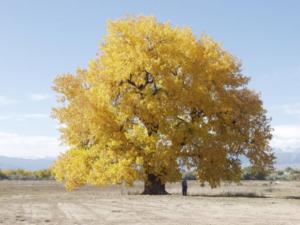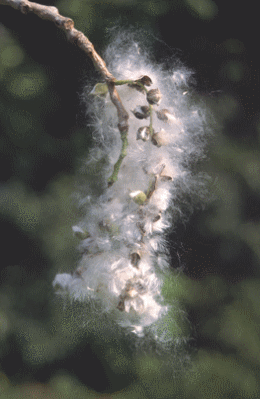 SKC Films Library |
| SKC Films Library >> Science >> Botany >> Flowering Plants >> Family Salicaceae (Willows) |
| Cottonwood (Populus spp) one of the largest members of the willow family, growing to heights of up to 80 feet or more, with trunk diameters of 5 feet or more Cottonwoods stand out on open prairies with their broad, open crowns and, in the fall, their bright yellow-gold leaves. Cottonwoods are also among the longest-living trees, with many specimens known to be well over 100 years old. Because they can only grow in wet soil, they are most commonly found along lakes, riverbanks and irrigation ditches. They are native to many parts of the eastern United States, but are most common in the Midwest. The gray bark of the cottonwood is thick, rough and deeply furrowed, which allows it to survive prairie fires with little internal damage. The leaves are triangular in shape, 3 to 5 inches long, and shiny green most of the year. Both male and female cottonwood trees bear flowers, but only female trees bear fruit. The fruit itself is an egg-shaped capsule that is about 1/2-inch long. The fruit matures in late spring or early summer and splits into three parts, releasing tiny seeds contained within cottony masses. The tree gets its name from these fruits and seeds, which greatly resemble those of cotton plants (the cotton plant is not, however, related to the cottonwood tree).
Early pioneers who traveled across the Great Plains always welcomed the sight of cottonwoods on the horizon because it meant that they were nearing a source of water. Cottonwoods were also important to those pioneers because they were often the only source of firewood for miles in any direction. That importance is why the cottonwood is the state tree of both Kansas and Nebraska. Scientific Classification division Magnoliophyta |
| SKC Films Library
>> Science
>> Botany >> Flowering Plants
>> Willows
(Family Salicaceae) This page was last updated on September 24, 2017. |

